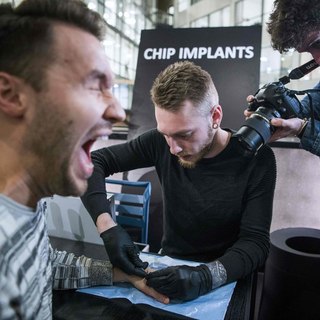July 16, 20192 min read, 434 words
Published: July 16, 2019 | 2 min read, 434 words
Thousands of people in Sweden are having futuristic microchips implanted into their skin to carry out everyday activities and replace credit cards and cash.More than 4,000 people have already had the sci-fi-ish chips, about the size of a grain of rice, inserted into their hands —...
CRITIC REVIEWS
Credible
August 9, 2019
The piece interestingly outlines a possible future scenario, where certain technologies are merged with a human body to facilitate health monitoring and consumerism. A bit speculative to the extent that, while mentioned cursorily, the privacy implications are not fully explored. While the prospective reader might find their interest piqued they may not find many answers to broader questions which they may be seeking answers to in regards to the referenced technology.
August 9, 2019
PUBLIC REVIEWS
Sensational
July 16, 2019
This article is a little sensational and a little surface, these chips have actually been being reported on for awhile (https://www.npr.org/2018/10/22/658808705/thousands-of-swedes-are-inserting-microchips-under-their-skin). I wish it talked more about the 4,000 people who already have them instead of just talking about the chips themselves. What have the chips changed about society? How are the companies growing? Which banks allow them? etc. etc.
July 16, 2019
Credible
July 16, 2019
Misleading headline, generally interesting & seemingly credible article. If the headline read '4000 Swedes...' the whole article would be more credible & I'd give it 5 stars.
BUT a misleading headline should be enough of a reason to downvote some of the article, as the headline implies that many or all Swedes are doing this, where obviously this is a very small minority.
As Valentina commented, the author had a chance to go deeper and collect some interview information from the 4000 chipped people, but there is none of this -- and surprisingly, no photos of either the implant or a hand that has an implant.
July 16, 2019
Great Context
July 16, 2019
The article highlights the issue of privacy, particularly data privacy, that this phenomenon exacerbates. There is not really any bias or emotion just factual reporting with some quotes from a scientist discussing the situation.
July 16, 2019
